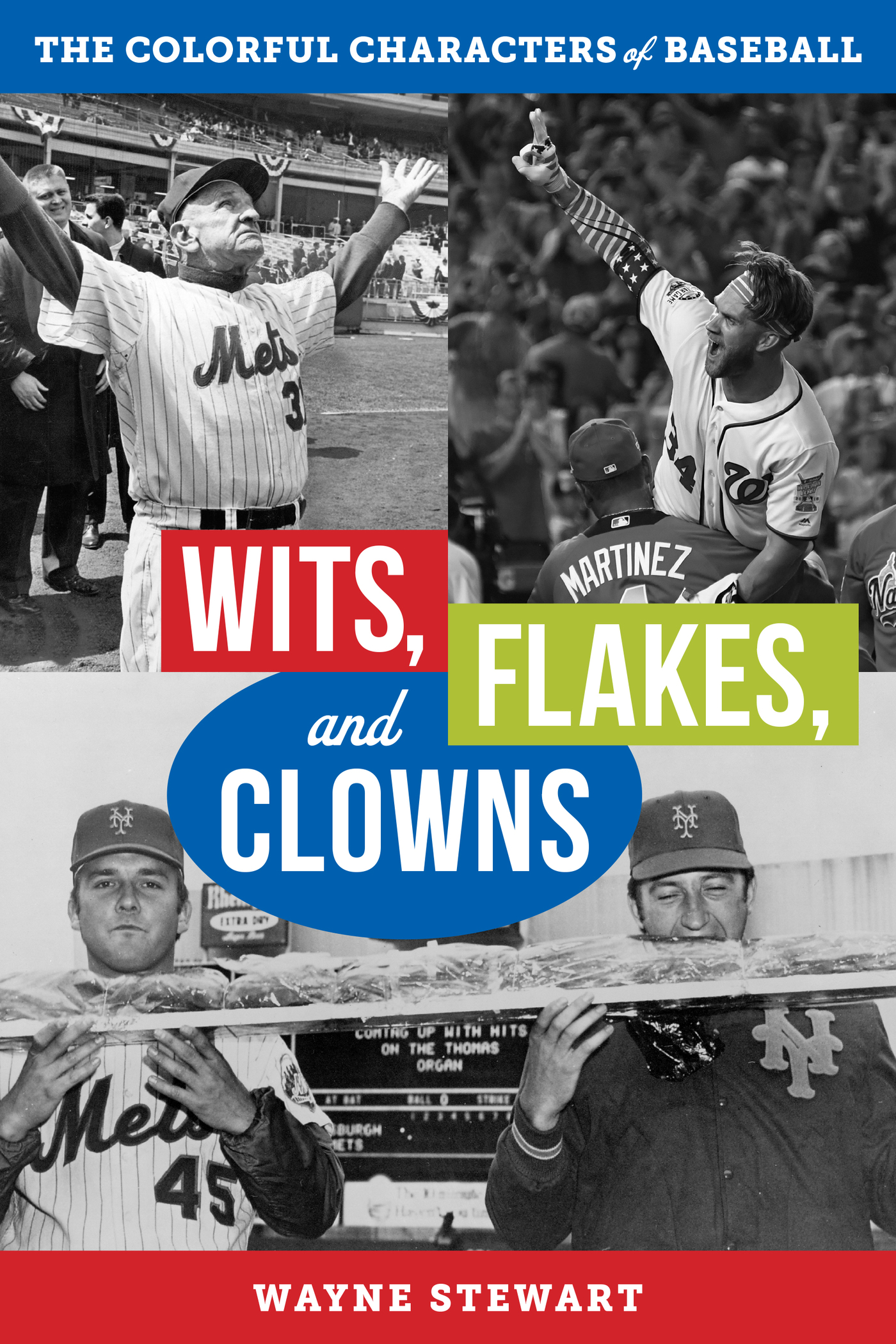Wits, Flakes, and Clowns
The Colorful Characters of Baseball
Wayne Stewart
ROWMAN & LITTLEFIELD
Lanham Boulder New York London
Published by Rowman & Littlefield
An imprint of The Rowman & Littlefield Publishing Group, Inc.
4501 Forbes Boulevard, Suite 200, Lanham, Maryland 20706
www.rowman.com
6 Tinworth Street, London SE11 5AL
Copyright 2020 by The Rowman & Littlefield Publishing Group, Inc.
All rights reserved. No part of this book may be reproduced in any form or by any electronic or mechanical means, including information storage and retrieval systems, without written permission from the publisher, except by a reviewer who may quote passages in a review.
British Library Cataloguing in Publication Information Available
Library of Congress Cataloging-in-Publication Data Available
ISBN 978-1-5381-2521-2 (cloth : alk. paper)
ISBN 978-1-5381-2522-9 (electronic)
 TM The paper used in this publication meets the minimum requirements of American National Standard for Information Sciences Permanence of Paper for Printed Library Materials, ANSI/NISO Z39.48-1992.
TM The paper used in this publication meets the minimum requirements of American National Standard for Information Sciences Permanence of Paper for Printed Library Materials, ANSI/NISO Z39.48-1992.
As usual, to my fantastic family:
wife Nancy, sons Sean and Scott,
their wives Rachel and Katie,
and my grandson Nathan.
To the memory of my father, O.J. Stewart,
who taught me the importance of words,
and to my mother, Margaret,
who taught me the joy of reading.
Also, to my breakfast and lunch buddies:
Bobby Bastock, Pete Carbonaro, Brent Hutlock,
Al Shaffer, Liz Zirolli, Steve Gall, Carol Banas,
Steve Meggitt, Kevin Pall, Diane Freeman,
Ryan Coleman, Peggy Ignatz, Nancy Mowrey,
and to the memory of Dave Arroyo.
Acknowledgments
A huge thank-you goes out to all members of the media, players, coaches, and managers (more than 140 helpful people) who granted me interviews over many years. There would be no book without them. Thanks also to my editor, Christen Karniski, who has provided great input for this book.
Introduction
This book is the result of on-again, off-again research and exclusive interviews with more than 140 former and active players, coaches, managers, broadcasters, and other baseball people over nearly 30 years. From players who were just a wee bit off, to those who were off the wall, to the ones who were completely off their rocker, humor is the common denominator for the subjects of this book. Further, the lines often blura baseball flake may have also been quite witty, and not all clowns were flakesbut labels dont matter. Funny is funny.
This book will cover many, but not all of the men who fall into at least one of our groups. In fact, more than 135 characters are included here. Nor is every funny line or great tale about these men included. Thats especially true of the most widely chronicled characters such as Casey Stengel, Yogi Berra, and Dizzy Dean. For such men, the book provides a sort of ample Whitmans Sampler of some of their most famous quotes and escapades while trying to focus more on new, exclusive commentary and lesser-known anecdotes.
Limiting a bit of coverage of those men also freed up room for some lesser-known stories and quotes about players such as the wonderfully zany Moe Drabowsky, the refreshingly wild Joe Charboneau, and the witty Andy Van Slyke. Casual baseball fans will be introduced to colorful men such as Doug Rader, Jerry Reuss, and Turk Wendell. Todays players are represented by men like Bryce Harper, Yasiel Puig, and Francisco Lindor.
The quotes used in this book are primarily taken from exclusive interviews conducted by the author, while some quotes have been published in multiple sources. When material came from one specific, outside source, an endnote is provided. All statistics in the book are through the 2018 season.
The dates inside the parentheses next to each players name indicate the range of years he spent in the major leagues, even when there was an interruption in his big league career. If that player was also a manager, the span of years running from his first managerial job through his final year is also given. The order of the players presented in each chapter is chronological.
Chapter 1
Background
To paraphrase writer George Plimpton, in the world of sports, the smaller the size of the ball, the richer that sport is in its interesting and humorous quotes and anecdotes. He observed that there are tons of great golf and baseball stories and some, but considerably less, from football and basketball. Then he whimsically noted that there are certainly no good stories about beachballs.
Aside from the fact that there are absolutely no funny tales from the sport of ping-pong, Plimpton was correct. Without a doubt, baseball is the richest source of humor. Furthermore, a disproportionate percentage of the laughs that baseball provides comes from a cadre of colorful characters.
One point about todays playersthey are much more educated than those from long ago, frequently coming to the pros from college campuses, not straight off the farm like a Bob Feller or out of an inferno of a factory or emerging from a dungeon of a gloomy mine, blackened by coal dust. Current players are also much more sophisticatedno player nowadays sports a nickname such as Rube, Babe, Dizzy, or Daffy.
Many critics contend that what now passes for a nickname is frequently simply a shortening of a surname such as calling Jeff Bagwell Bags. In a 2007 interview, Cleveland coach Joel Skinner went a step further when he said, I think the characters of the game back in the 50s and 60s are gone.
In 2009, Andy Van Slyke said he felt that perhaps one of the things thats missing is a little more fun in the game. He mourned the demise of bench jockeying: When I first came up [in 1983] players would rag on the other players, and it wasnt that you were disrespectful, it was just part of the chatter. Again, you werent really being derogatory, it was just part of the languageand that chatter is basically gone. Its a part of the game that I miss, but the game changes in a lot of ways and thats one way the game has changed. He seems to feel that players today are, by and large, much more professional, but that approach is somewhat clinical, eliminating much of the bench jockeying and the color of the game.
All-Star Mark Teixeira added, Its a friendlier game now. Guys play [for several teams] so often nowadays that you could be on four or five different teams within five years. Its definitely changed. Its always nice to see former teammates. Playing against guys kind of makes the big leagues one big happy family.
Award-winning reporter Gus Garcia-Roberts said, Players these days are more professional in every way. For example, they work out, where they used to think the gym was bad luck. You might be less inclined to do [pranks] to your colleague whos making $25 million and takes himself very seriously than you might have in the past when it was somewhat more of a Beer League atmosphere.
Some feel that baseball has gone from the days of vicious bench jockeying by colorful characters, when venom and vulgarities were spewed between dugouts during games, to todays mannerly ways where one would almost expect to see a library-like Silence, please sign in both dugouts. But wait a minutemaybe every generation contends colorful characters are missing from the game. Just as Teixeira and Van Slyke expressed such thoughts rather recently, a 1972
Next page
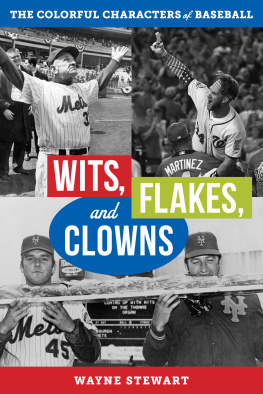


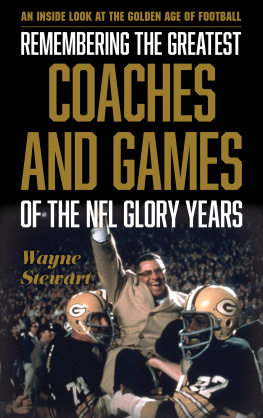

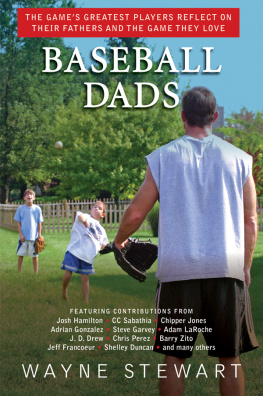

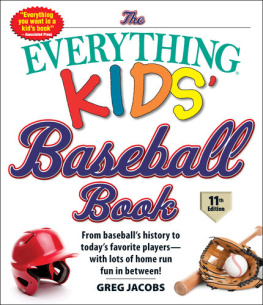
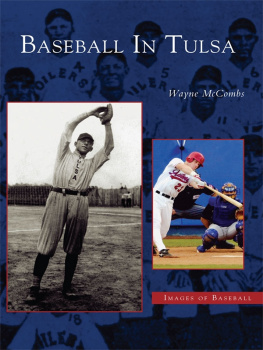
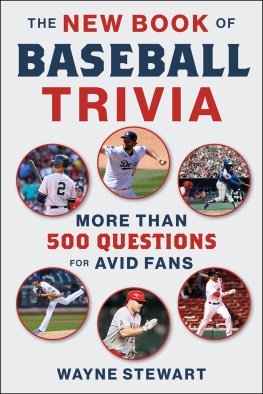
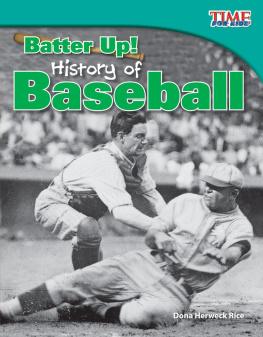
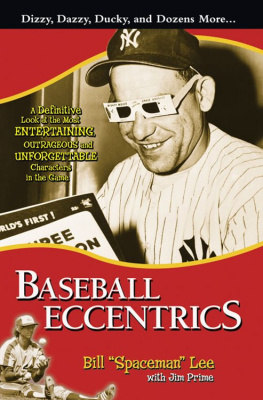
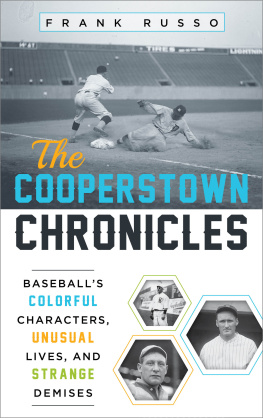
 TM The paper used in this publication meets the minimum requirements of American National Standard for Information Sciences Permanence of Paper for Printed Library Materials, ANSI/NISO Z39.48-1992.
TM The paper used in this publication meets the minimum requirements of American National Standard for Information Sciences Permanence of Paper for Printed Library Materials, ANSI/NISO Z39.48-1992.